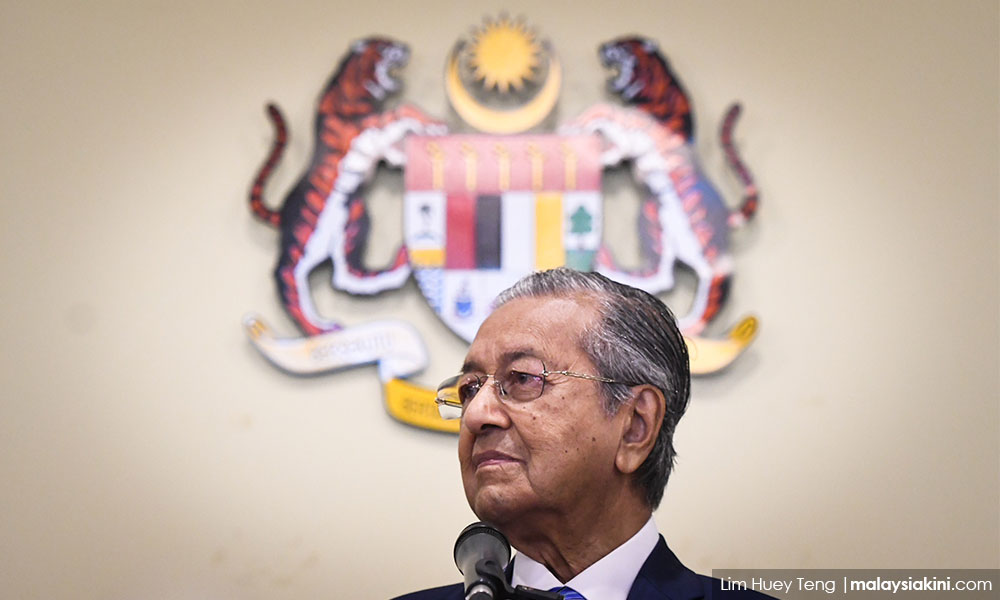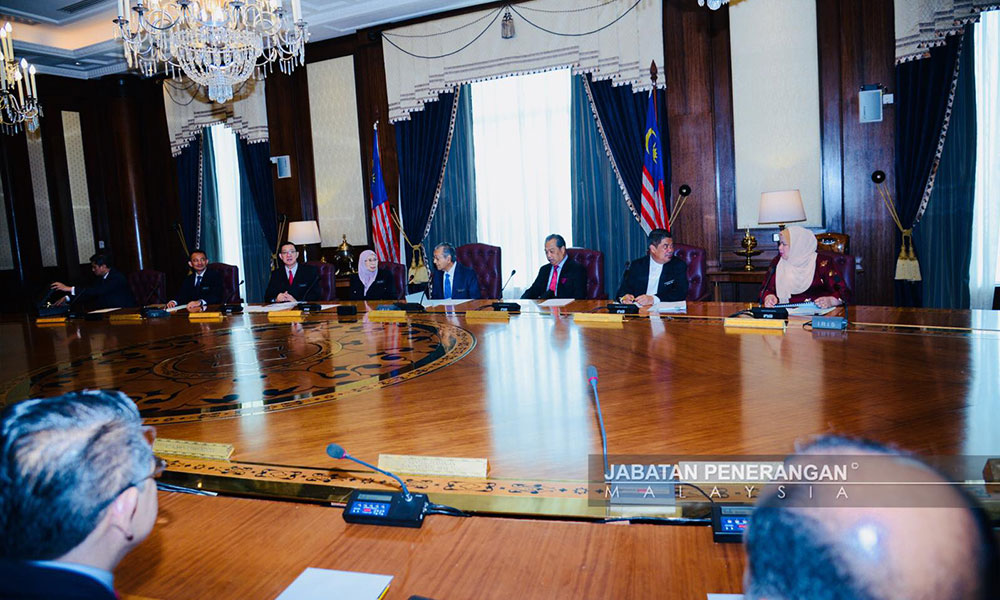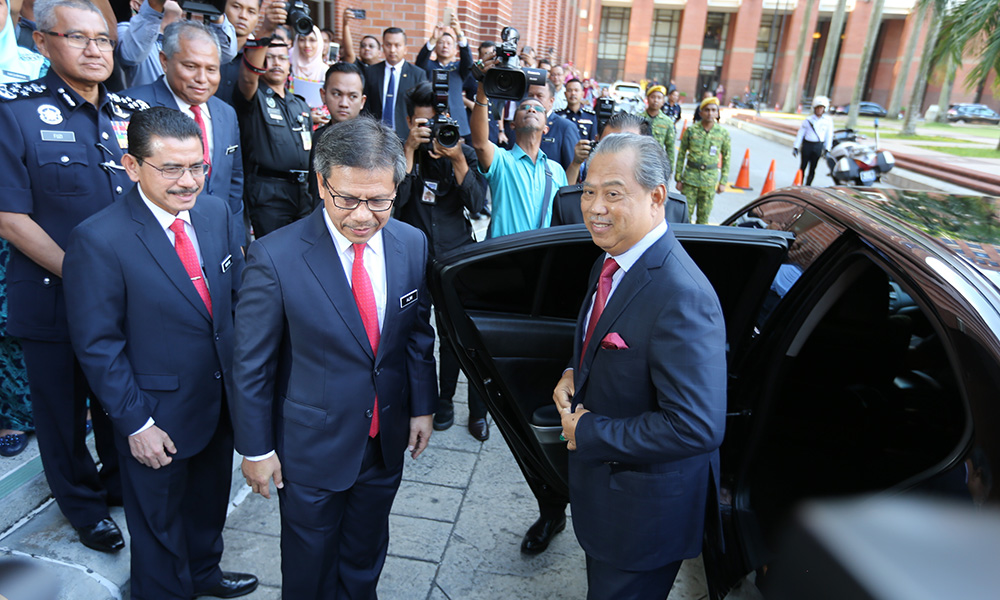
On May 21, Prime Minister Dr Mahathir Mohamad disclosed that Malaysia’s debt and liabilities had reached more than RM1 trillion. The next day, Finance Minister Lim Guan Eng elaborated that ratio of debt and liabilities to the GDP ratio stood at 80 percent.
However, he also emphasised that “in the financial sector capitalisation is high, non-performing loans are low, liquidity in the capital market is high. The fundamentals are there but we need to improve the fiscal situation.”
One should add that Malaysia has also accumulated foreign reserves to the tune of US$110 billion which can finance 7.7 months of retained imports.
If the Pakatan Harapan government has been candid about the debt situation, it is because it is sincere about transparency and accountability. These are important traits of good governance.
Its predecessor through partial revelation of statistics gave the impression that the debt to GDP ratio was only 50.8 percent.
There is an earnest attempt on the part of the present national leadership to overcome the debt problem.
Its determination to get to the root of the 1MDB scandal is a manifestation of that commitment. If it can recover some of the loot, it would alleviate the financial situation to an extent.
Mahathir and his team are also trying very hard to reduce public expenditure. Entities and departments such as the Land Public Transport Commission (Spad), Special Affairs Department (Jasa) and the Malaysian External Intelligence Organisation (Research Division) are being abolished.

The contracts of some 17,000 political appointees have been terminated. A leaner cabinet has agreed to a 10 percent salary cut.
In this connection, the abolition of the taxpayer supported National Professors Council (MPN) has elicited criticism from some academics. Their criticism has little merit.
Research that the state deems necessary can always be undertaken by universities and research institutes through academic clusters and the like. What the state should do is to increase funding for solid research activities. The MPN from a research perspective is superfluous.
While a handful of academic elites may not be able to appreciate the larger challenge facing the nation, it is significant that ordinary citizens have chosen to step forward to help the government tackle the debt problem.
A couple of them have launched initiatives of their own to mobilise funds from the general public. Private endeavours of this sort may not yield very much, but one hopes that they will inspire well-heeled individuals and rich corporations to voluntarily contribute to a national fund that will boost public coffers.
Making changes
Government leaders and planners should also seize the opportunity provided by the debt problem to affect some fundamental changes to the economy.
Since domestic debt is one of the contributory factors to our national debt, a serious attempt should be made to increase the wages of the B40 and M40 categories substantially.
This should be accompanied by more systematic endeavours to elevate the skill level of our workers and enhance their productivity. Identifying new sources of wealth through innovation would be priority as we seek to liberate ourselves from the debt burden.
All this would be part of a larger mission to create a just society through the redistribution of wealth as envisaged by the Rukun Negara.
Beyond debt and the economy, Pakatan Harapan leaders are also talking about rescinding laws such as the Printing Presses and Publications Act 1984, Sedition Act 1948, Prevention of Crime Act 1959 (Poca), apart from abolishing the mandatory death sentence.

The Home Minister Muhyiddin Yassin has also promised to look at provisions in the Security Offences (Special Measures) Act 2012 (Sosma), Peaceful Assembly Act 2012, and the Prevention of Terrorism Act 2015 (Pota).
Changes in these laws would help to create a new atmosphere that is more conducive to the flourishing of human rights and human dignity.
Questions remain
Based upon intentions and actions so far, the Harapan government is undoubtedly reform oriented.
This is why civil society groups that have always advocated reform should lend their support to those aspects of government policy that have the potential of affecting change that will benefit the people.
At the same time, however, they should not hesitate to admonish moves which are obviously detrimental to the values and principles of governance that the Harapan itself claims to espouse.
What this means in concrete terms is that while a pardon for a political leader may be defensible from a humanitarian perspective, interpreting it as a repudiation of earlier judicial verdicts may have far-reaching implications for the system of governance itself.
Likewise, one wonders why a senior minister had to be sworn in when he is facing a trial related to issues of integrity?
There are other concerns. Why have ministers from Sabah and Sarawak not been incorporated into the cabinet almost 20 days after May 9? What sort of impact does it have upon people in the two states?

Certain crucial portfolios such as foreign affairs, international trade, and sports and youth have yet to be filled.
Equally important, vague niceties in its manifesto aside, what is Harapan’s thinking on national integration or on the role of Islam and other religions in the public sphere?
It is incumbent upon civil society groups to raise these questions. To play this role effectively, they have to remain independent of the state even if they are on the same page with the state on various issues.
The powers-that-be should understand and empathise with their independence. They should view it as a vital dimension of a thriving democracy and of their own quest for justice and reform.
CHANDRA MUZAFFAR is the chairperson of the board of trustees of Yayasan 1Malaysia. -Mkini



No comments:
Post a Comment
Note: Only a member of this blog may post a comment.